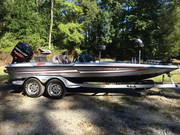I want to try building some rods. I think it's intriguing and rewarding to catch fish on something built by myself. I'm hoping that you can give me your top 3 to 5 (or more) suggestions, based on your experience, to help reduce my learning curve. I appreciate any feedback.




 Reply With Quote
Reply With Quote






